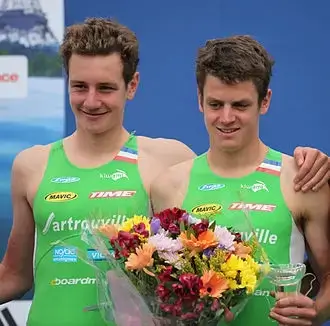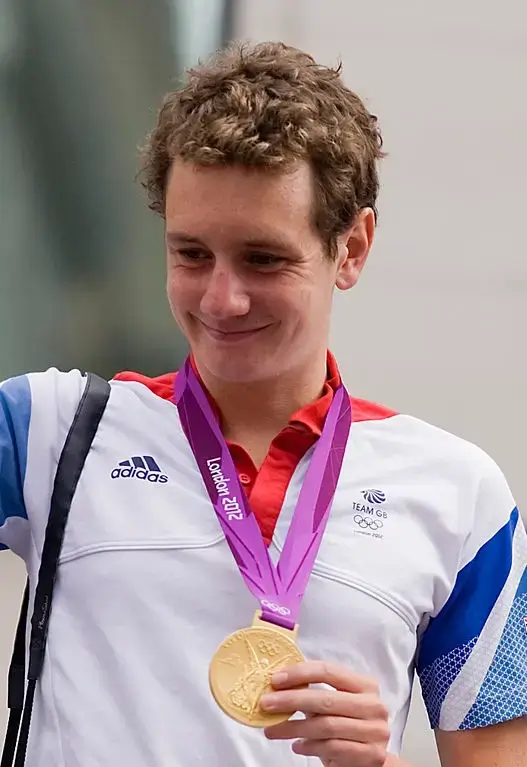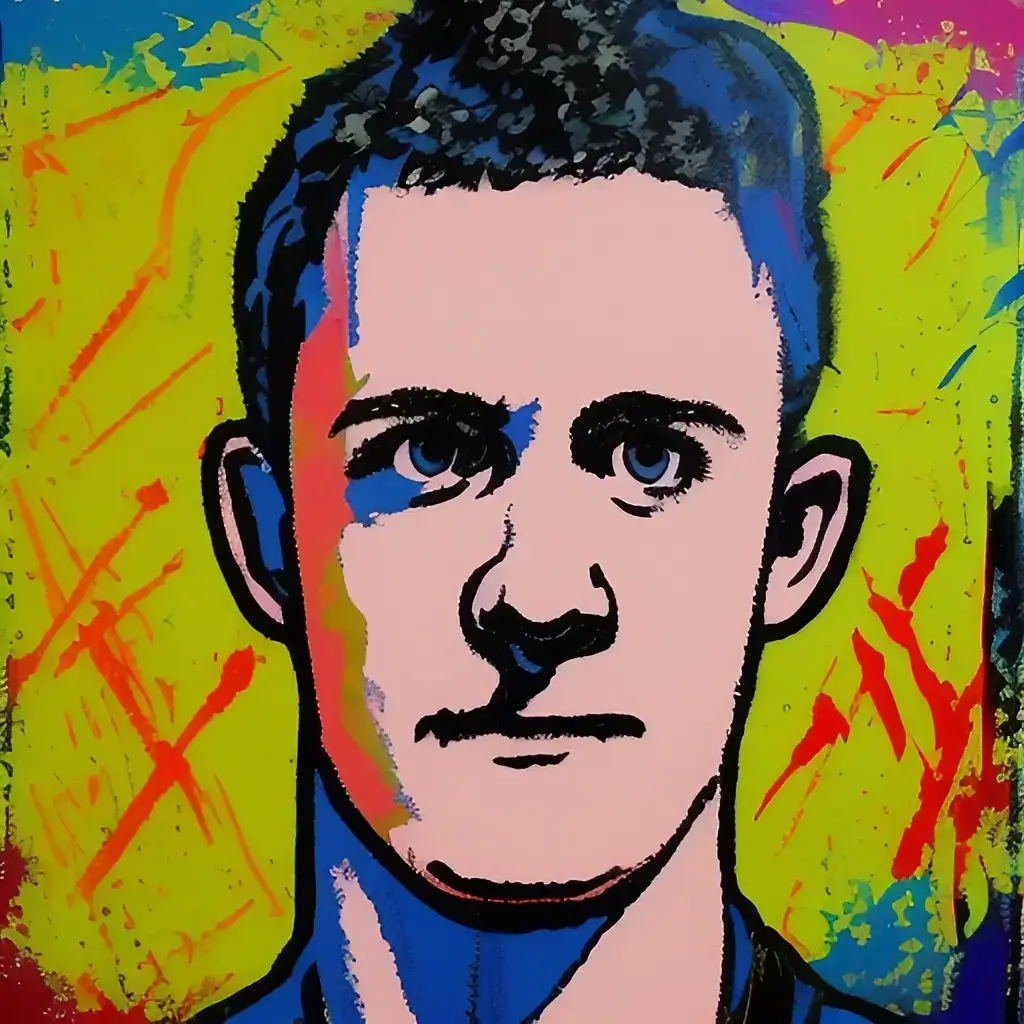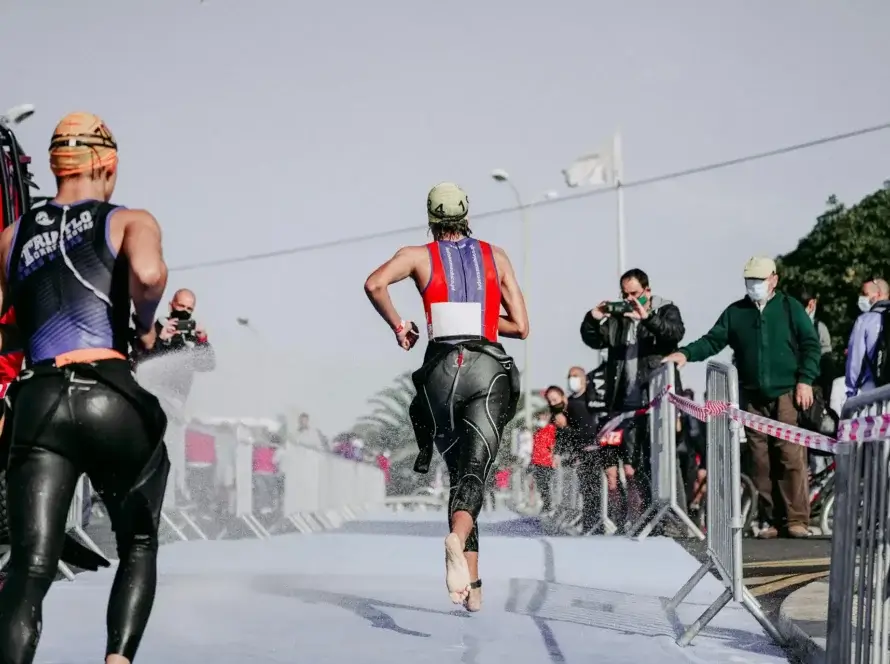There are some athletes who seem to be born for greatness. Alistair Brownlee is one of those athletes. He has been a dominant force in the triathlon world for years and shows no signs of slowing down. In this article, I will take a look at his amazing career. From his early days as a junior athlete to his status as one of the best triathletes in the world.
Alistair Brownlee’s Journey to Becoming a Triathlon Legend
Alistair Brownlee is a British triathlete who has been a dominant force in the sport for years. He is considered one of the best triathletes in the world and a double Olympic Games champion, having won Olympic medals in 2012 and 2016. In this article, we will take a look at Alistair Brownlee’s amazing journey from junior athlete to international superstar.
The Beginning
Alistair Brownlee is one of Britain’s top triathletes of all time. He is the only athlete to hold two Olympic titles in the triathlon event, winning gold medals in the 2012 and 2016 Olympic Games.
Alistair has also been a World Champion in triathlon twice (2009, 2011), and a four-time European Champion (2010, 2011, 2014, 2019). Consequently, it is fair to say that he is more than just an amazing athlete!
His brother Jonathan Brownlee is also a decorated triathlete. The Brownlee brothers are a force to be reckoned with in the triathlon world. Brownlee is an incredible athlete and has achieved great things, including winning Olympic gold medals. His brother Jonathan is also a fantastic triathlete and together, they make a formidable team.
Rivals like Mario Mola and Javier Gomez constantly kept the Brownlees always on their toes. The brothers however proved time and time again that they are the best in the business.
Alistair Brownlee is also an inspiration to all athletes around the world. He has been awarded a Member of the Order of the British Empire (MBE) for his incredible contributions to the sport.
What is Alistair Brownlee’s backstory and how did he get into triathlons?
Alistair Edward Brownlee was born in 1990 in Keighley, England. He attended Bradford Grammar School, an independent school in Yorkshire, where he studied medicine. However, after just the first term at Cambridge’s Girton College, Brownlee switched to studying Sports Science and Physiology at the University of Leeds.
There, he completed his undergraduate degree in 2010 and also earned an MSc in Finance from Leeds Metropolitan University in 2013.
Starting Out
He started running and swimming with his parents at a young age. His dad is a runner and his mother a swimmer. The two younger Brownlee brothers soon followed in his footsteps. Alistair is the eldest of three brothers.
As mentioned, his younger sibling Jonny also competes in triathlons, and he won the bronze medal at the 2012 Summer Olympics.
Alistair’s youngest brother Edward is also into sports but prefers rugby and water polo over triathlons.
The Influencer
Brownlee was introduced to triathlon at a very early age by his uncle, Simon Hearnshaw. Hearnshaw is a regular competitor in the sport and inspired Alistair to give it a try.
As a junior, Alistair was a successful fell and cross-country runner. He came second in the Junior English Cross Country Championships and won the Yorkshire County title on several occasions.
Alistair Brownlee has said that “It was only when I won the World Junior Championships in 2006 that I made the conscious decision to really focus on triathlon”. This was when Brownlee left Cambridge to move back to Yorkshire, focus on triathlon, and study at the University of Leeds.
He described his decision to leave Cambridge in an interview with a student newspaper. He stated “Trying to fit 30+ hours of training around my degree was pretty impossible. I decided that triathlon was my true passion, so I moved back to study at Leeds. I changed to a less demanding course, and in a city where the sport was well supported at the time by British Triathlon”.
He was a member of the triathlon club based at Leeds Metropolitan University’s Carnegie High-Performance centre and was coached by Carnegie Director of Sport Malcolm Brown, and in swimming by Jack Maitland.
Alistair’s success is a result of his dedication and hard work – proving that if you want something bad enough, anything is possible.
Career
Alistair represented Great Britain at the 2008 Summer Olympic Games, finishing in 12th place and first British competitor. He achieved great success during the 2008 season, with his best world cup finish being 3rd place in Madrid narrowly missing out on the silver medal place. Furthermore, he also won the under-23 world championship.
Alistair’s achievements are a testament to his hard work and dedication and inspire others to never give up on their dreams.
World Championship Series
Alistair Brownlee is a three-time ITU World Champion and is the only person ever to win the ITU World Triathlon Titles for Junior Men (2006), Under 23 Men (2008), and Senior Men (2009).
In simple terms, he is a world championship enigma.
Alistair Brownlee’S Challenges
Alistair Brownlee has faced many challenges in his career but has always emerged victorious. In 2010, he sustained a stress fracture of the femur and was not able to return to competition until June.
However, he made a triumphant return in Madrid, followed by another win at the ETU Championships. Unfortunately, he collapsed with exhaustion at the London race in July, but he bounced back to take the final race of the 2010 ITU Series. This makes him a champion in every sense of the word and it shows through his accomplishments at the world championship level.
Setbacks
Despite Alistair facing many disappointments and setbacks in his career, he never gives up. In the April opening event of the 2011 ITU Championship season in Sydney, Brownlee suffered a heavy fall while in the lead which brought early disappointment. However, he quickly recovered and went on to win the next two ITU series events (in Madrid and Kitzbühel) and furthermore successfully defended his European title at the 2011 Pontevedra ETU Triathlon European Championships.

ITU Title
He then won the 2011 ITU world title, after winning the Grand Final in Beijing and the gold medal at the 2012 London Olympic Games. His performance in London set him up for not only the commonwealth games but also another Olympic medal at the next Olympics in Rio 2016.
Alistair is a triathlete extraordinaire. He won the Commonwealth Games Triathlon in 2014 and controlled the field with Jonny from start to finish. Alistair showed his dominance by pulling away on the first lap of the run. He also took gold in the mixed triathlon team relay at the 2014 Commonwealth Games alongside his brother Jonny Brownlee and teammates Vicky Holland and Jodies Simpson. Their result at the commonwealth games is an amazing accomplishment that any athlete would be proud of.
Alistair Brownlee the hero
His heroic act at the World Triathlon Series in Cozumel, Mexico, is one for the history books. When his brother Jonathan Brownlee began to show the effects of heat and exhaustion, Alistair abandoned his own chance of winning the race in order to help him across the finish line.
This selfless act resulted in a third-place finish for Alistair and a silver medal place for Jonny Brownlee. The Brownlee brothers, and in particular Alistair, are great role models and an inspiration to us all.
The South African Henri Schoeman, who had won bronze behind the Brownlee brothers in 2016 at the Rio Olympic Games, overtook Jonny and his brother Alistair and won gold. Alistair’s heroism is a reminder that anything is possible if you put your mind to it, but that helping others always comes first.
In April 2017, he made his long-course debut at the half-iron distance Challenge Mogan-Gran Canaria triathlon and won in a time of 4:03:09 – over eight minutes ahead of the runner-up.
The following month, he triumphed in the North American Ironman 70.3 Championships, securing his place in the Ironman 70.3 World Championship.
Alistair is a determined competitor and a true champion. He never gives up, no matter how challenging the course may be. And his fans can always count on him to give his best effort. We are lucky to have him as an ambassador for the sport of triathlon.

What are some of his most impressive accomplishments as an athlete?
Alistair has won numerous titles:
- Seven-time Yorkshire Cross Country Champion (U13–Senior)
- Seven-time Yorkshire fellrunning champion
- 2006 Junior European Duathlon Champion, Junior World Championship
- 2007 Junior European Champion, Junior World Vice-Champion
- 2008 U23 World Champion
- 2009 Hyde Park Triathlon Champion, British National Elite Duathlon Champion, ITU World Champion
- 2010 ETU European Champion
- 2011 World Team Champion, ETU European Champion, ITU World Championship Title
- 2012 World Team Champion, Olympic Champion (Gold Medal)
- 2014 European Champion, World Team Champion, Commonwealth Games Champion, Commonwealth Games Team Gold
- 2016 Olympic Champion (Gold Medal)
- 2016 Aquathlon Champion
How does Alistair Brownlee approach competition and training, and what advice would he give to aspiring athletes out there?
- The easiest way to succeed is by working hard. You might not be successful right away but if you keep at it and never give up, then eventually your efforts will show in the form of progress that can’t be ignored!
- Take care of yourself. It’s just as important to recover from an injury or stress, and make sure you’re getting enough sleep – both for your physical well-being and also so that the time spent training can be maximized without interruption!
- Take care of your body by stretching and working on weaknesses at the gym.
- We all know the feeling of being so busy with life that we have no time for ourselves. But it’s important to make sure you’re getting enough rest and nutrition, as well as fitness habits like eating healthy food or staying hydrated throughout your day in order to stay energized while still working hard at what matters most! A key part of this balance is learning how much stress certain things put on our schedules – especially when they involve other people who want something from us too.
- Sometimes the best way to succeed is with a little help from your friends. Join clubs and training so you can get advice, and support or simply just meet new people who are on the same journey as you!
The three secrets to his success
SWIM
If you can swim, then do. Find a 500-meter warm-up and keep it slow to focus on technique while concentrating during your race pace session. Do this for three 45-minute workouts per week instead of two hours long ones (or more). Do at least one fast set followed by endurance training every other day. Throw some speed work in there too!
BIKE
Long rides are an essential part of any cyclist’s weekly schedule. Make them sociable and enjoy the scenery with friends or family by taking your bike on a long-distance trip every now and then, it’ll help keep you healthy!
Even if it’s only five hours each week that is actively pedalling at high speeds (or more), over 10 minutes for gradual warm downs. This way when those warmer days arrive in late autumn/early winter we can still ride our bikes without getting too sweaty under layers during cool windy conditions
RUN
The key to running well is training. If you’re doing three runs per week make one long, another short, and the third where it’s combined with higher intensity or faster speeds–speedwork will help build your fitness level so that when race day comes around everything feels automatic!
I’m not sure what type of athlete/personality set they have but people who enjoy competing tend towards having an “all-or-nothing” attitude about life which can oftentimes manifest itself into being afraid if things aren’t going perfectly according to their plan immediately
Tips
His tip for triathletes is to be consistent with their training over a long period of time. This way, they will get fit and stronger which helps prepare them for race day.
Alistair’s bike tips for middle-distance racing are: lots of time on the saddle, you need to perfect your technique and make sure that not only do you have a good power output but also an efficient one. He suggests training with constant pressure rather than spikes in order to reach this goal; plus it helps if there is enough food available at all times!
What His Training Looks Like
“When I was competing in Olympic distance racing I would run anywhere between 80 and up to 120 kilometres in a week.
AB
“A normal week for me is probably somewhere in the region of 30 hours of training. This would consist of six bike rides a week, six runs a week, and five swims every day, slightly different. A couple of gym sessions, some physio and massage as well.”
How He Recovers and Looks After His Body
“I’m always on the go,” says Alistair. Being tired and training hard is part of being an endurance athlete. If I feel like my body’s over- taxed then I rest assured. I know that easy days are necessary for recovery in order to keep performing at a high-level week after week. Sleep well and Eat well
“As I’ve gotten older I’ve had to adapt my training to train less, to try and train more effectively and efficiently to get the most out of every session and look after my body more.
AB
“I normally have one physiotherapy session a week and one massage a week. Strength and conditioning make up a big part of my program now… I do mostly rehab stuff, looking after my calves, lower legs, hamstrings, and hips. Plenty of flexibility and strength [work] as well.”
Moving Up to Ironman
The transition from an Olympic distance race to one that is over eight hours can be a big jump. You’re going from less than two full marathons in terms of duration. Consequently, there’s much more time spent on foot. Furthermore, you have to make sure your nutrition holds up throughout the whole event as well!
He didn’t do too well when making this change, his pacing was all wrong. The result was that it made things very difficult for him during what should’ve been easy moments. Moments like eating or taking breaks between loops around town.
It takes a while before everything clicks though-you’ll definitely get errors here & there but eventually, they’ll disappear
Final Thoughts from Alistair
Alistair says that it may be a surprising and depressing insight, but it’s true nonetheless. Winning never feels as good as it should. I think it’s because you build up so much before a race that no reality can ever match it.
Cycling is a tough sport and I’m not going to lie, the cycling part can be pretty bad. You just want to stay near those in front of you. The idea is that they protect you from any dangers that may come your way. Especially on their breakaways or organized chase groups for a position at highway speeds where most crashes happen anyways!
The most significant worry for him is whether his legs will feel good. If they do, he can do anything!



